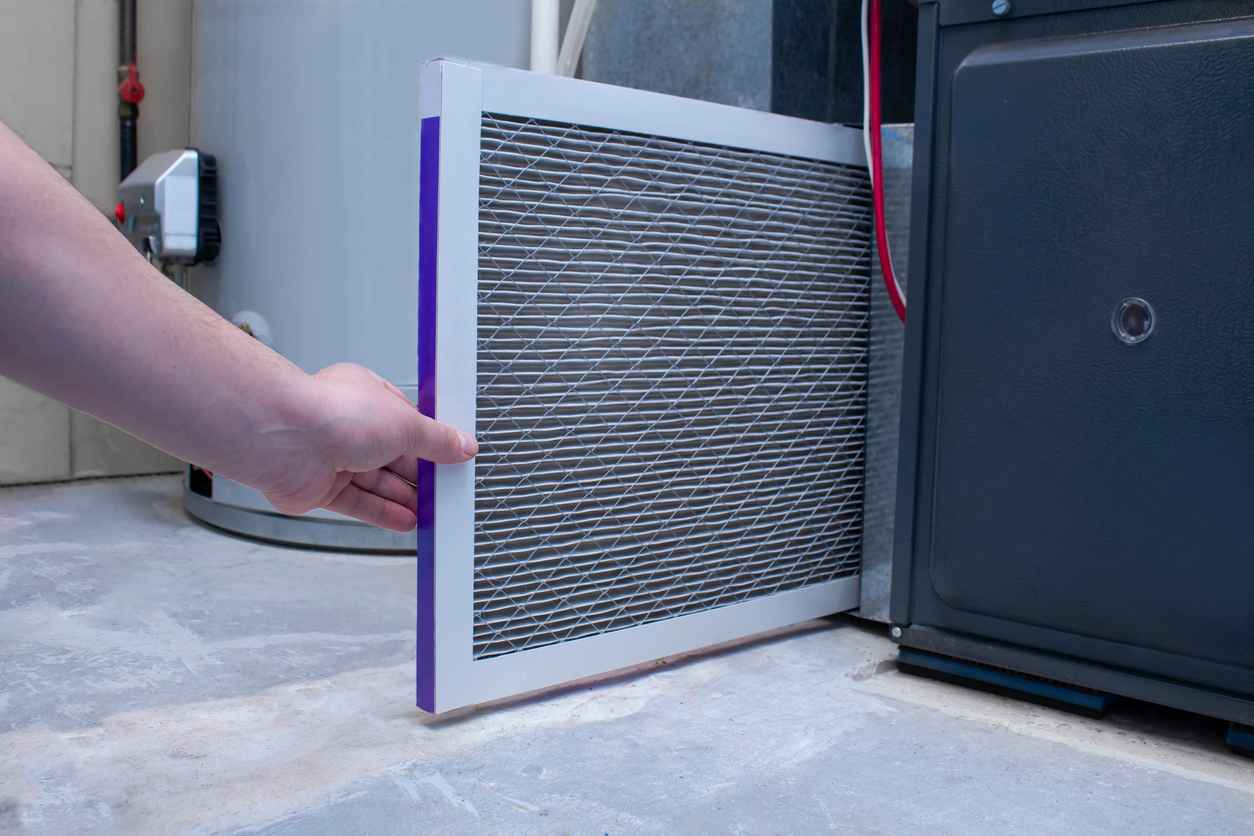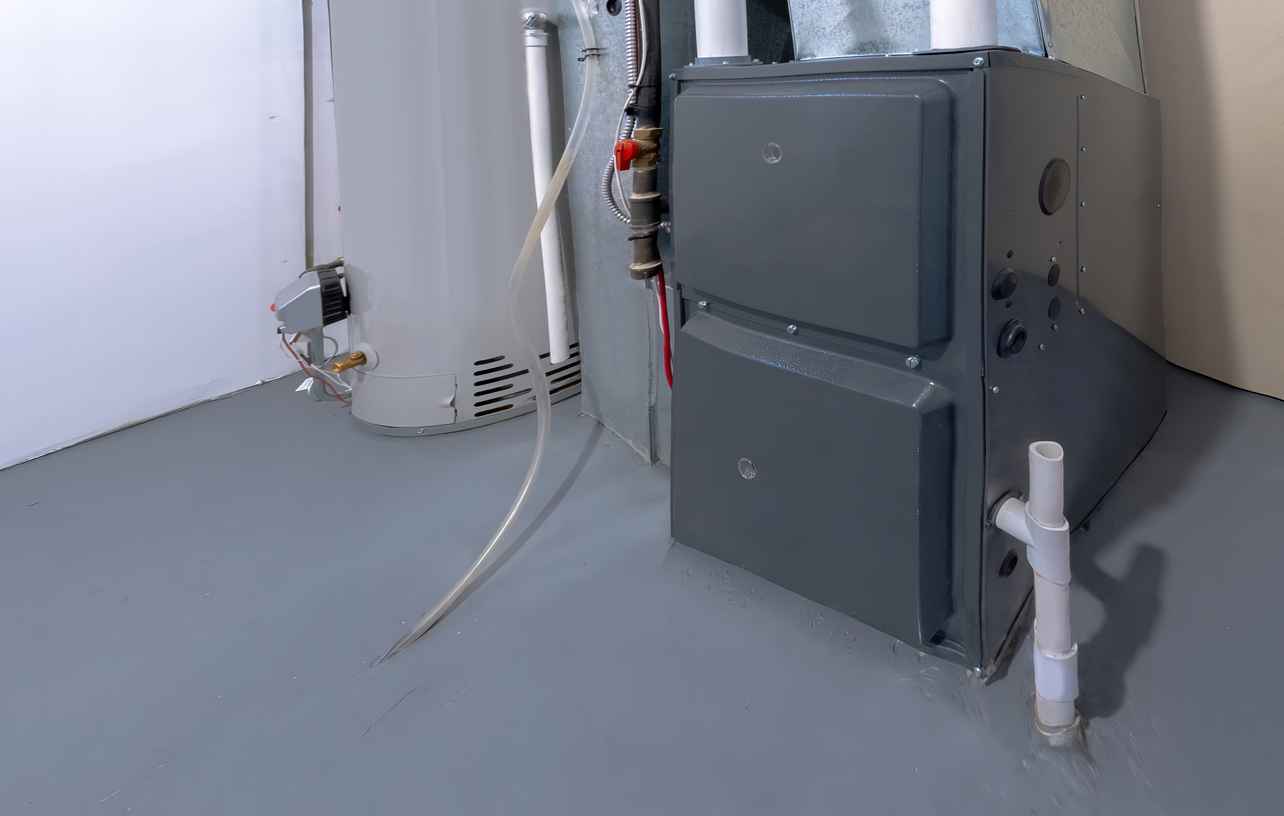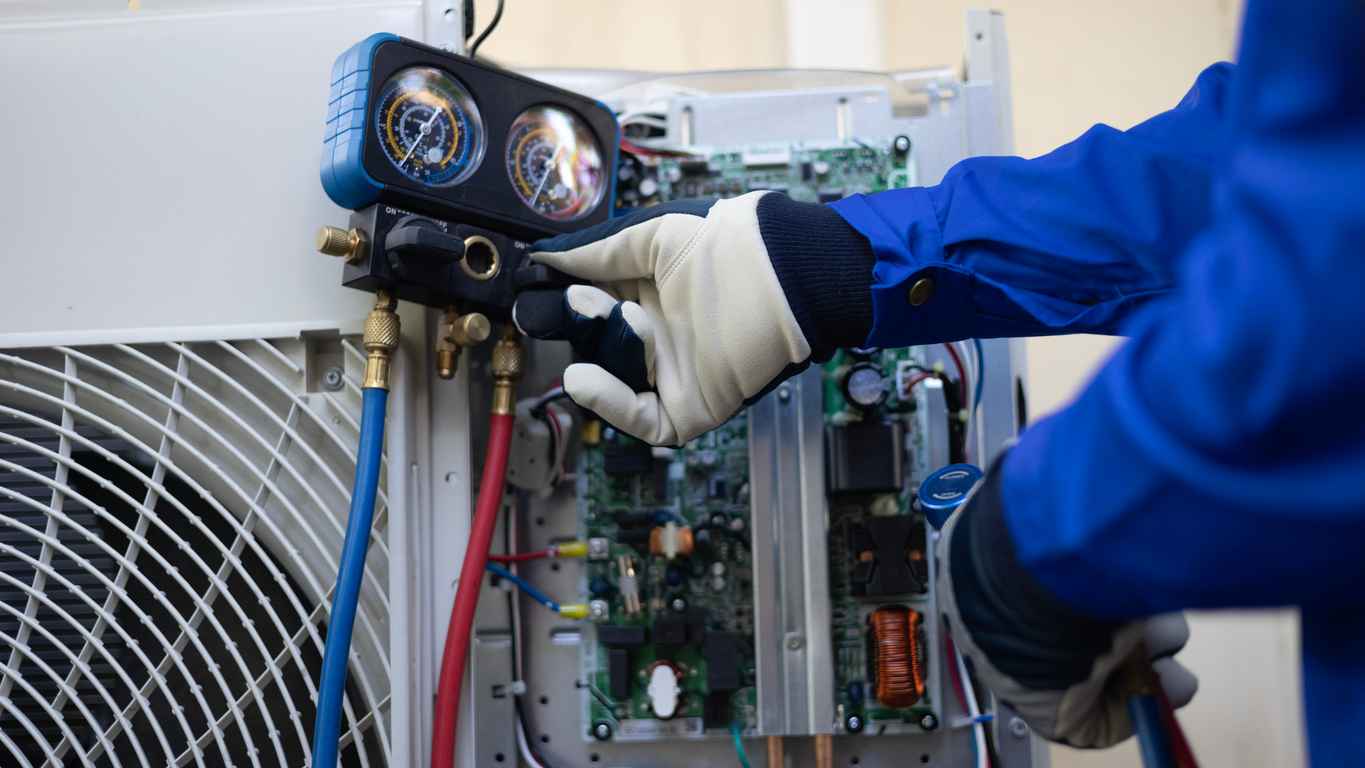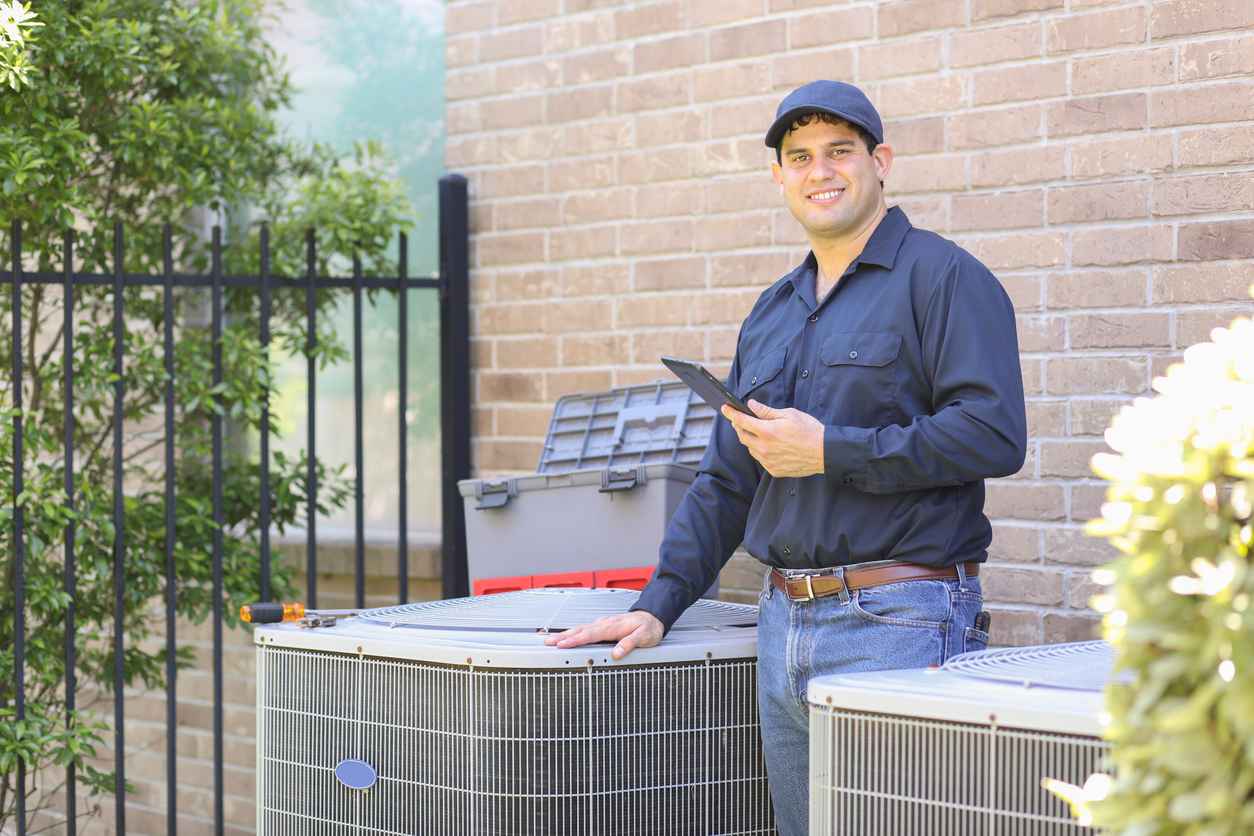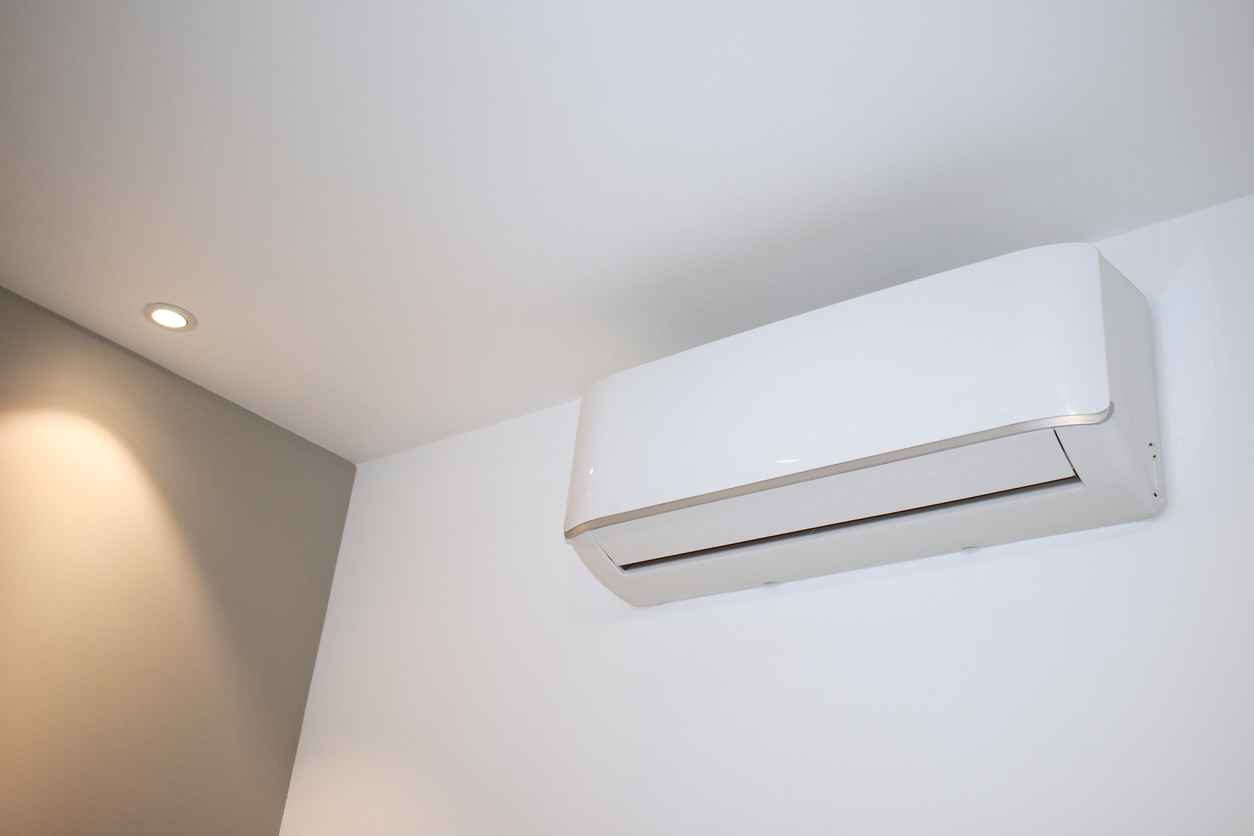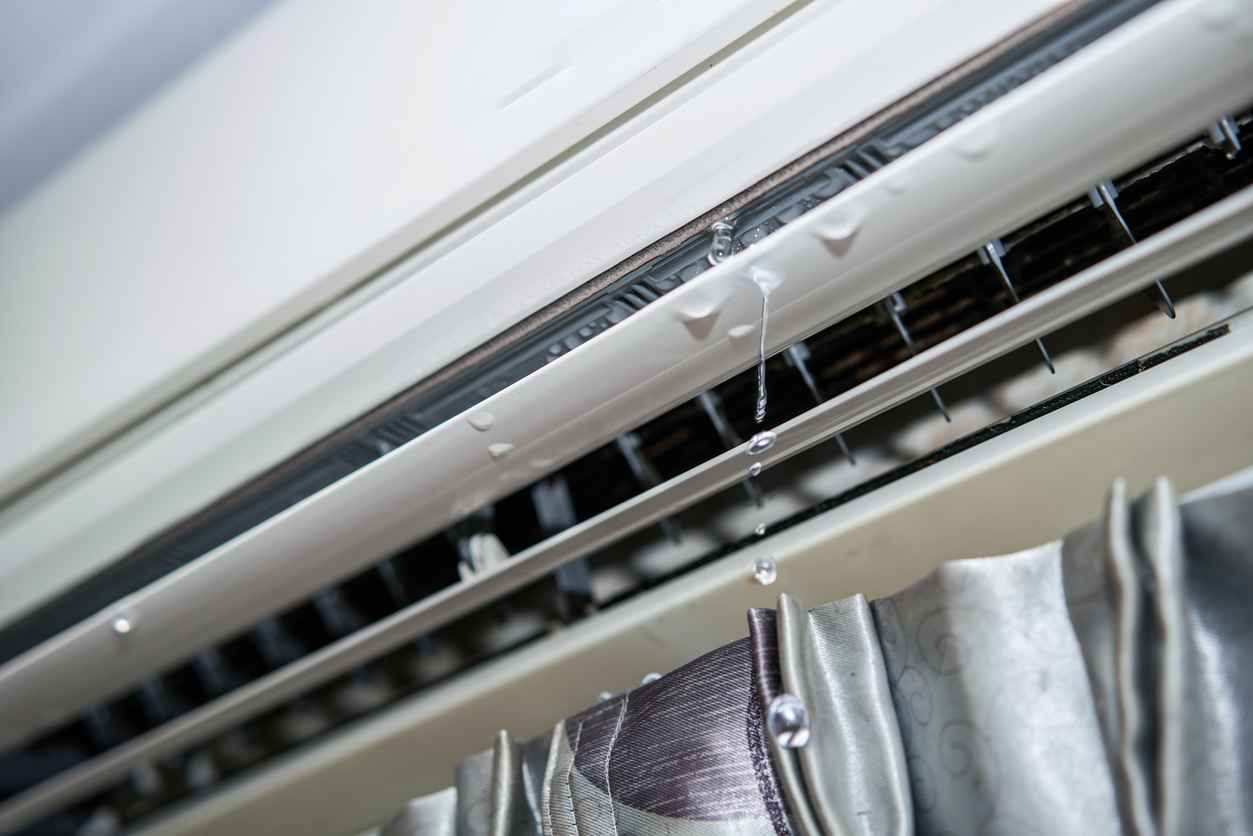
Why is My AC Leaking Water?
A puddle under your air conditioner isn’t just a nuisance—it’s a red flag. Many homeowners don’t realize that water leaks from AC units are a sign of something gone wrong inside the system. While some moisture is normal, consistent dripping or pooling water could point to bigger issues.
If left unchecked, it can lead to mold, water damage, or even a full system breakdown. Understanding the reasons behind a leaking AC is the first step toward fixing it. In this blog, we’ll break down what causes AC leaks, how to address them, and what you can do to stop them from happening again.
What it Means When Your AC is Leaking Water
Air conditioners naturally produce condensation as they remove moisture from your home’s air. This moisture normally drains away through a built-in condensate line and into a pan. When everything is working properly, you’ll never notice a thing.
But when water starts to leak from your AC, it means something is wrong with that drainage process. The issue could be as simple as a clogged drain line or as complex as a damaged evaporator coil or low refrigerant levels. Regardless of the cause, even a small leak can lead to big problems—like water damage to your floors or walls, increased humidity, and even mold growth near your system.
If you see standing water, moisture around your indoor unit, or damp spots nearby, it’s time to investigate further. A leaking AC is more than just a mess—it’s your system asking for help.
Key Signs Your AC is Leaking Water
Catching a water leak early can prevent serious damage to your home and HVAC system. Here are the clearest signs that your air conditioner might be leaking water.
Puddles or Moisture Around the Indoor Unit
If you see standing water or dampness near your AC unit, it’s likely not draining properly. This is one of the most obvious signs that something’s wrong with the drainage system.
Musty Odors or Mold Smell
A leaking AC creates excess moisture that promotes mold and mildew. If your system starts giving off musty smells, check for leaks and mold growth around the unit.
Weakened Airflow or Uneven Cooling
When coils freeze due to drainage problems, airflow is restricted. If some rooms feel warmer than others or the system seems weaker, water buildup could be the root cause.
Water Stains on Walls or Ceilings
Discoloration or stains near vents or directly below an attic unit may be caused by ongoing leaks that have reached nearby surfaces. This is often a sign the problem has been happening for a while.
How to Stop and Prevent AC Water Leaks
Whether you’re already dealing with a leak or trying to avoid one, knowing how to respond can help protect your system and your home.
Quick Fixes You Can Try at Home
Use a wet/dry vacuum to clear out minor clogs in the drain line. If you haven’t changed your air filter in a while, replace it—dirty filters can lead to freezing and excess condensation. Also, take a quick look at the drain pan and connections to see if anything is visibly loose or misaligned.
Repairs That Require a Technician
Leaks caused by frozen coils, refrigerant issues, or damaged drain pans need professional attention. If your system keeps leaking after a quick fix—or if you hear strange sounds or see ice forming—it’s time to call a certified HVAC technician to inspect it thoroughly.
Tips to Prevent Your AC from Leaking in the Future
A few routine steps can go a long way toward keeping your air conditioner leak-free and running smoothly. Preventative care not only helps avoid water damage but also improves your system’s efficiency and lifespan.
Replace Air Filters Regularly
A clean air filter promotes proper airflow and helps prevent frozen coils—a common cause of water leaks. Check your filters monthly and replace them at least every 1–3 months during heavy use.
Schedule Seasonal AC Maintenance
Professional tune-ups in the spring or early summer allow technicians to catch small issues, clean components, and ensure the drainage system is working properly.
Inspect the Drain Line and Pan
Take a quick look at your drain line and condensate pan during the cooling season. If you notice standing water or rust, it may be time to clear the line or replace the pan.
Ensure the Unit is Level
If your indoor AC unit isn’t installed on a level surface, water might not flow into the drain properly. Make sure your unit is sitting flat and stable.
Keep the Outdoor Unit Clear
Debris and dirt can affect the overall performance of your system, causing strain that can lead to condensation issues. Maintain a clean area around your condenser for better airflow.
Don’t Ignore a Leaking AC
A leaking AC might start with just a few drops, but it can quickly become a serious issue if ignored. From water damage to poor system performance, the consequences of a neglected leak aren’t worth the risk. Fortunately, many of the most common causes are easy to prevent with regular maintenance and early detection.
If you’ve noticed puddles, musty odors, or reduced cooling power, don’t wait for the problem to get worse. Whether it’s a quick repair or a deeper issue, professional help ensures your system stays efficient, safe, and leak-free.
Contact Ultimate Heating & Air today for expert AC service, trusted repairs, and routine maintenance that keeps your home cool—and dry—all season long.

